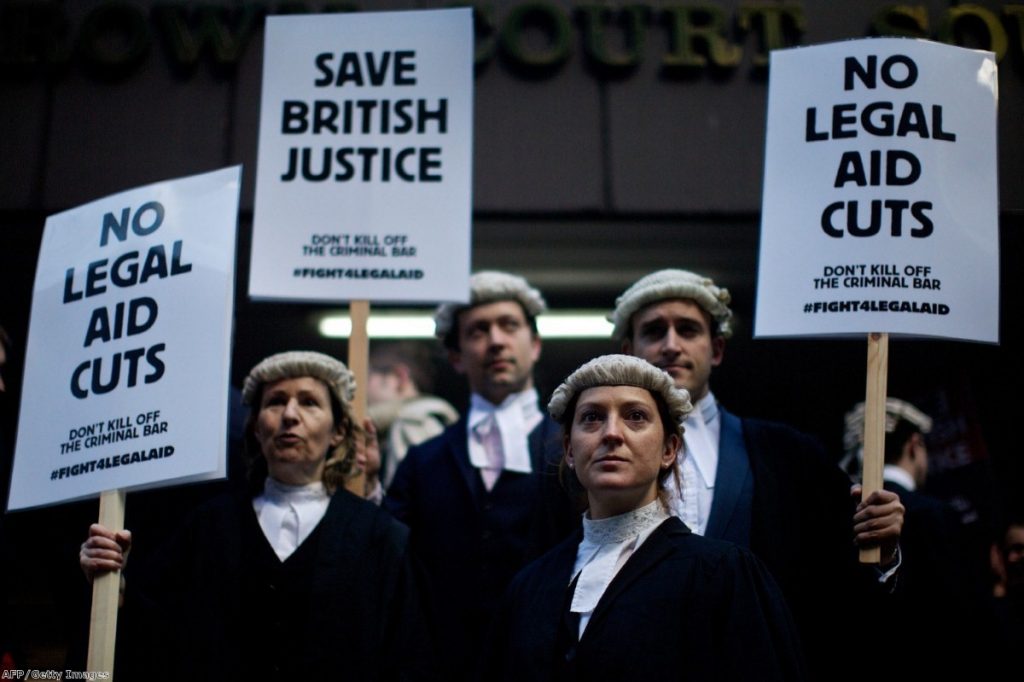Justice screeches to a halt amid nationwide legal protest
High profile court cases such as the trial of Max Clifford screeched to a halt today, as thousands of lawyers walked out for the second time this year.
The action – which is not being called a strike to avoid possible concerns about contractual obligations to the Legal Aid Agency – will hit court cases in London, Manchester, Birmingham, Liverpool and other cities.
The Criminal Bar Association (CBA) said it expected up to 3,000 barristers to take part, despite the dangers of doing so.
The Crown Prosecution Service in London has written to barristers warning that any leaving work could be deprived of state prosecution work in the future.


David Cameron's brother, Alexander, is being watched closely for whether he will walk out of work as the head of chambers at Three Raymond Buildings.
Outside parliament, hundreds of barristers dressed in gowns and wigs are expected to gather to protest against cuts to legal aid.
They will hear speeches from former Blur drummer-turned-solicitor Dave Rowntree and the mother of hacker Gary McKinnon, who narrowly escaped deportation to the US.
Government plans set for April will cut £220 million from the £2 billion annual legal aid budget, predominantly through a 30% reduction in fees for complex, high-cost cases and an 18% cut in fees for other crown court work.
The government says the cuts are a vital way to reduce expenditure on one of the most expensive legal aid systems in the world.
"As everybody knows, this government is dealing with an unprecedented financial challenge and the Ministry of Justice has no choice but to significantly reduce the amount of money it spends every year," a Ministry of Justice spokesperson said.
"We have spoken at length over the past year with solicitors and barristers about the reforms and our final plans reflect many of the changes they asked for.
"It does mean fee reductions, but it also includes a series of measures to ease their effect on lawyers."
But legal experts warned the move would force hundreds of high-street legal firms to close and drive talented people away from criminal law.
The CBA said many junior barristers already faced rates as low as £20 a day once preparation, time in court and chambers' fees were factored in.
They also recieve no holiday pay, pension provision or sickness or maternity benefits.
The CBA's Nigel Lithman QC told BBC Radio 4's Today programmes: "If these cuts are not addressed, then the British justice system, which is held in such high esteem around the world, will cease to exist as we know it and the British public can no longer expect true justice to be delivered.
"The effect will be crippling. It means people of social diversity will not be able to come to the Bar, will not be able to go into criminal law.
"One third of [solicitors] will go out of business and people coming from university will simply choose not to go into the criminal justice system because they won't be able to afford to".
Nicola Hill, president of the London Criminal Courts Solicitors Association, said: "These cuts mean that law firms will rapidly go to the wall in their hundreds, leaving people who can't afford to pay privately with only the crumbs of legal aid.
"Firms will sack experienced, more expensive solicitors, replacing them with those who are unqualified and cheap. This can only be damaging for justice. The solicitors who are still in business quite simply won't have the time, money or expertise to prepare cases properly."









